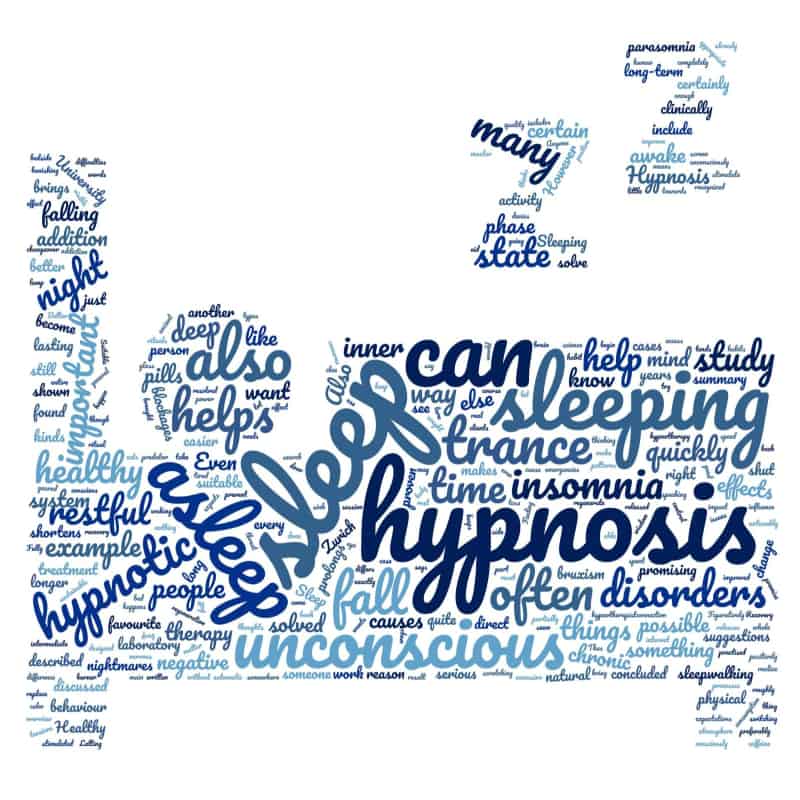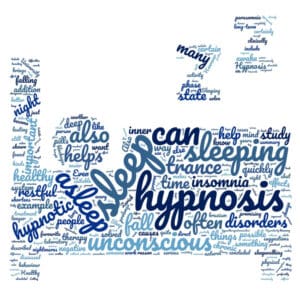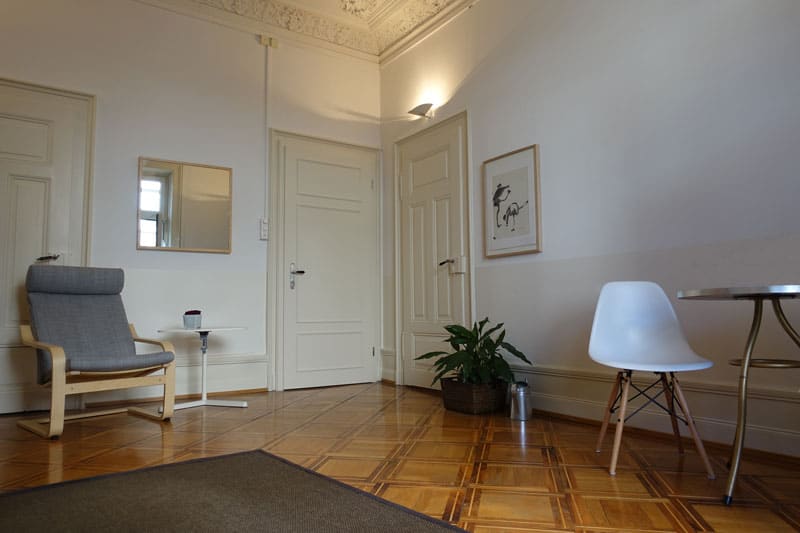- Mion Hypnosis
- Online Hypnosis Therapy
- Hypnosis applications
- Mental issues
- Physical issues
- Self improvement
- Hypnosis Zurich
- Jan Mion
- Contact



More and more people suffer from sleep problems. These include problems falling asleep, complete insomnia, but also problems sleeping through the night. If these problems become chronic, they can cause a lot of negative things, up to health problems. Chemical medicine is often overwhelmed with sleep problems, which is why more and more sleeping pills are being prescribed. However, these often only bring a superficial sleep and side effects such as addiction.
If you are looking for a natural and sustainable sleep aid, then hypnosis is the right choice. Hypnosis is a healthy and lasting means to solve sleep problems and generally sleep better.
In hypnosis for sleep disorders the issues are solved that are unconscious blockages for sleep. Thus, a restful and healthy sleep can develop again. If you want to fall asleep better and sleep healthily, then hypnosis therapy against sleep problems is the right thing for you.
What are the advantages of hypnosis against sleep problems?
The hypnotic trance is not like sleeping, but it is often described as a state between awake and sleeping. For example, most people in a trance can see REM eye movements that are otherwise only visible during dreaming. With the direct access to the unconscious, hypnosis makes many things possible about sleep.
The hypnotic trance is the state of transition from awake to asleep and is therefore urgently needed for a drifting off to sleep. If we learn, for example, with self-hypnosis to bring us into this hypnotic state, then much is already done.
Sleeping is the favourite activity of every human being. Anyone who thinks that he or she has another favourite activity should replace sleeping with it. Then you quickly realize that sleeping is the favorite pastime.
As this ancient wisdom says, insomnia is a very serious condition. Sleep problems can have very serious consequences, both psychological and physical. When we can no longer sleep, our whole system tends to go on the back burner. We see the world in a distorted way, have a frosted screen and are often irritable. All kinds of achievements, whether in sports or at work, are reduced.
Also, time spent in bed and not being able to fall asleep is very distressing. When you toss and turn trying to fall asleep and just can't. When thoughts are circling or something else keeps us from sleeping. In such moments it is simply not possible to fall asleep even though you are very tired, which again brings stress and frustration.
This can drag on until you just can't anymore.
When you are trapped in the clutches of insomnia, many ways out seem more reasonable than they actually are. Sleeping pills, for example, can become addictive quite quickly. Even if they promise a quick sleep and a good night's sleep, sleep is still often described as not very restful. As a short-term help against sleep problems, sleeping pills can certainly help. However, if the problems persist for a longer period of time, something else should help you fall asleep.
In such cases it is recommended to use hypnosis. Hypnosis has many positive qualities that are important for healthy sleep. This is especially important for chronic sleep problems.
In all cases hypnosis brings immediate deep relaxation. Even the most nervous people can shut down in the hypnotic trance. This inner calm can very quickly have an effect on the main symptoms of insomnia. Feelings of physical weakness and the well-known "ground glass" are at least attenuated in trance. Also the inner dialogue usually falls silent quite quickly. In this case, the hypnotic trance acts as a reset for the system. So the inner processes that are running at full speed can be shut down.
A summary study of the effects of hypnosis on sleep has concluded that hypnosis is a promising treatment for sleep problems.
The sleep laboratory of the University of Zurich has also found that hypnosis prolongs the restful deep sleep phase by 81% and shortens the time to fall asleep by 67%.
In addition, a long-term study over 5 years has shown that hypnosis therapy helps against parasomnia. For example against sleepwalking, nightmares and bruxism.
So hypnosis also helps clinically proven against all kinds of sleep disorders. Be it difficulties in falling asleep, problems with sleeping through the night or other sleep problems.
Der Zustand der Hypnose liegt zwischen wach und schlafend. Wenn sich unser Gehirn in diesem Zustand befindet, kann es auch beginnen, sich teilweise zu regenerieren. Außerdem können die Blockaden, die einen gesunden Schlaf verhindern, gelöst werden.
Our unconscious does not keep us from sleeping for no reason, and certainly not for a long time. Sleep is such an important part for the regeneration of mind and body that the unconscious only denies us sleep in real emergencies.
Even though we may not know the reason, it is unconsciously there somewhere. The unconscious has recognized a threat it wants solved. Figuratively speaking, there's nothing like sleeping with a predator scratching at your door.
If your thoughts about insomnia are about negative things or what still needs to be done, this is another clue.
What exactly keeps someone awake differs from person to person. In a hypnosis session I often go with my clients to search for these very causes.
Of course there are also other patterns of behaviour or thinking that can affect sleep.
In hypnotherapy for sleep disorders, the causes are sought and discussed with the hypnotherapist so that they can be resolved during the hypnotic trance. These can include many things, such as the concerns discussed above or excessive caffeine or internet consumption.
When we know roughly what it is we go into the trance. This often helps to solve certain sleep disorders. Letting go consciously to sink into the hypnotic trance can already make an important difference.
With the appropriate hypnotic suggestions we can stimulate the unconscious to change.
The inner atmosphere is designed so that the problems can be solved even during sleep. Recovery is also stimulated so that the unconscious can come to rest, no matter what else is going on. In this way, a suitable state is brought in, which makes sleeping easier and releases possible tensions.
The change to this state of sleeping is practiced so that it can happen like switching off the bedside lamp. In other words, that the changeover is possible from waking to sleeping, preferably without a long intermediate phase.
The unconscious is the master of habits.
The unconscious is the master of habits. The more automatic something happens, the easier it is for us to do it. So that the conscious mind can positively influence sleep behaviour, certain rituals should also be practised. If we can let the unconscious take over at a certain time, we can also control the result.
If someone expects every night that he or she cannot sleep, this has an impact. That is why the sleep ritual includes the banishing of negative expectations.
In this way, the entire system is geared towards healthy, restful sleep.
Hypnosis is not only suitable for people with sleep problems, but also for those who generally want to improve their sleep quality. You can even use online hypnosis to have a good night.
Through the direct connection with the unconscious, sleeping through the night and recovery can be noticeably improved. And this in a completely natural and lasting way.
